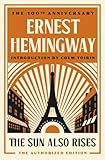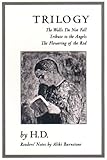When I really want to feel some measure of control, I write poetry. Poetry is shaped, while prose assumes the shape of the page. Other than indents for dialogue and new paragraphs, prose follows the path set by a document’s margins. We type and let the letters fall where they will—because for essayists and fiction writers, the contours of a sentence are often more of sound than sight. Prose writers are no less precise than poets, but their words have different functions.
 A sense of control might be why I so often return to Robert Frost’s essay “The Figure a Poem Makes,” the introduction he penned to the 1939 version of his Collected Poems. My impulse might appear contradictory; Frost’s essay is best known for his suggestion that the route of a poem is not in control, but surprise—for both reader and writer. “It is but a trick poem and no poem at all,” he says, “if the best of it was thought of first and saved for the last.”
A sense of control might be why I so often return to Robert Frost’s essay “The Figure a Poem Makes,” the introduction he penned to the 1939 version of his Collected Poems. My impulse might appear contradictory; Frost’s essay is best known for his suggestion that the route of a poem is not in control, but surprise—for both reader and writer. “It is but a trick poem and no poem at all,” he says, “if the best of it was thought of first and saved for the last.”
Yet when I say that I write poetry to feel in control, I don’t mean that I write poetry as an act of coercion or prescription. I have a feeling where my poems might go, but I also have a feeling where most of my days might go. I am usually surprised by both.
Although I appreciate lines such as “like a piece of ice on a hot stove the poem must ride on its own melting,” my interest in “The Figure a Poem Makes” is focused on other elements. Frost’s biographer Lawrance Thompson said the poet wanted to see if each poem “had a kind of character and shape or form of its own.” A poem, Frost claimed, “had to show that the poet was ‘getting his body into it.’”
Frost takes a few paragraphs to get his body—or perhaps his focus—into the essay. He begins with a lament about how abstraction “has been like a new toy in the hands of the artists of our day.” He stops and starts, but settles into a rhythm when his own abstractions find that figure of poetry, one that “begins in delight and ends in wisdom.” I often drift through his sentences, but pause on one particular gem: that a good poem “ends in a clarification of life—not necessarily a great clarification, such as sects and cults are founded on, but in a momentary stay against confusion.”
 While I’m skeptical that poetry will save us, I’ve felt compelled to write poetry again in the past year as a stay against the daily conflagration of argument and noise. Poetry is a salve against the digital exhortation to be constantly engaged in the digital world. I do think poetry and prayer have much in common, but I think good prayer is kenotic; an emptying of self, the hope to be better in how we treat others. If I pray for things I want, I start to feel like Jake Barnes in The Sun Also Rises, rambling on in the cathedral.
While I’m skeptical that poetry will save us, I’ve felt compelled to write poetry again in the past year as a stay against the daily conflagration of argument and noise. Poetry is a salve against the digital exhortation to be constantly engaged in the digital world. I do think poetry and prayer have much in common, but I think good prayer is kenotic; an emptying of self, the hope to be better in how we treat others. If I pray for things I want, I start to feel like Jake Barnes in The Sun Also Rises, rambling on in the cathedral.
Writing poetry is a return to the self. A claiming of space and soul. An affirmation of worth.
 Lately I have been reading H.D.’s The Walls Do Not Fall, and lines like “Let us substitute / enchantment for sentiment, // re-dedicate our gifts / to spiritual realm” make me think of Frost. Poetry as a momentary stay against confusion. I think Frost’s essential word here is momentary; to entirely escape from the world seems not only impossible, but perhaps a bit selfish. Yet to give in to the cultural—or perhaps capitalist—demand to remain superficially engaged, online or otherwise, is to assert the importance of society over spirit.
Lately I have been reading H.D.’s The Walls Do Not Fall, and lines like “Let us substitute / enchantment for sentiment, // re-dedicate our gifts / to spiritual realm” make me think of Frost. Poetry as a momentary stay against confusion. I think Frost’s essential word here is momentary; to entirely escape from the world seems not only impossible, but perhaps a bit selfish. Yet to give in to the cultural—or perhaps capitalist—demand to remain superficially engaged, online or otherwise, is to assert the importance of society over spirit.
Now I write essays—about poetry, culture, and God—but my first two books were collections of poetry. Those books feel like part of a past life. They were written before my daughters were born. The economics of poetry are unforgiving. Poetry is a place of no deadlines. A place of searching. It is also a world of little remuneration. It is romantic to think that such a thing does not matter. But it does.
The writing life is a succession of different acts, with their own failures and conflicts and moments of joy. To live as a writer means to embrace, and perhaps be inspired by, these different seasons. Nostalgia shouldn’t stop us from moving forward, but if we’ve opened a window years before, there was probably a good reason.
Writing poetry is an act of ordering our thoughts and perceptions into lines and sections. By focusing on a form of writing that embraces structure and selection, we can participate in a daily examen of sorts—and whether that poetry is ever published is not really the point. There are greater rewards.
I am writing poems again. And I suspect that I’m not the only one.
Image Credit: Pixabay.
The post A Stay Against Confusion: On Why I Started Writing Poetry Again appeared first on The Millions.
from The Millions http://ift.tt/2Dw10Zp
Comments
Post a Comment